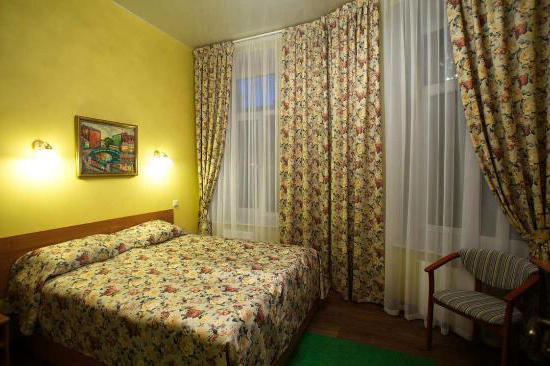Business Ideas! How to Start a Boutique Hotel?

💡 Want more business insights? Stay ahead of the curve with our exclusive updates!
👉 Join our Telegram channel for daily business ideas and expert tips.
👉 Follow us on Facebook to never miss a trend or update!
Don’t just read—connect, grow, and innovate with us today!
In Europe, tourism is thriving with a growing number of travel agencies, entertainment venues, and resorts, as well as significant growth in the hotel industry. Opening a mini-hotel can be a viable option for owners of spacious apartments or well-appointed cottages. How can one start this venture successfully? Experienced lawyers have the answers.
Ensuring Legal Compliance for Your Business
So, becoming the owner of a small hotel is attainable for almost any residential property owner. The category of "mini-hotel" encompasses establishments with up to 15 rooms. Before embarking on renovations and furniture purchases, it is crucial to go through a series of legal procedures.
Experts have identified three main conditions for setting up this type of business:
- Rooms must be located on the ground floor or directly above non-residential premises;
- The mini-hotel will require a separate entrance;
- The owner must comply with fire safety and sanitary regulations.
Furthermore, the residential property will need to be reclassified as non-residential. Otherwise, the entrepreneur may face issues with tax authorities and the property management organization. Advertising agencies may also refuse to place ads for hotels not registered properly.
After preparing and formalizing the property status, one must consider the business form. In Europe, activities aimed at generating income systematically are considered entrepreneurial. Lawyers recommend that mini-hotel owners choose one of the following legal forms:
- Sole Proprietorship (the proprietor is personally liable for debts but can benefit from simplified tax procedures and other privileges);
- Limited Liability Company (a legal entity with a minimum capital requirement, where the liability of the founder is limited to their investment).
Additionally, the hotel owner can establish a closed or open joint-stock company. This form is rarely used in small businesses as it entails significant capital investment even during the registration phase. This form of company requires adherence to numerous rules regarding management and profit distribution.
Special Considerations for Property Renovations
Since a hotel cannot be located within a residential property, the process of changing the property category is inevitable. The procedure can commence with legally formalizing the renovations. Approval for reconstruction will need to be obtained from the local urban planning department. The application must be accompanied by the following documents:
- Floor plans certified by the local Technical Inventory Bureau (previously known as BTI);
- Ownership certificates for the property or other establishing documents;
- A list of proposed works;
- Specialists' reports (if the property type necessitates it).
After registering the renovations, one can proceed with preparing the documents for changing the designated use. The required documents include:
- Application;
- Floor plan with a detailed technical description (from the Technical Inventory Bureau);
- Property ownership certificates and contracts;
- Redevelopment project.
The reclassification of property from one category to another is handled by the authorized municipal authority. If desired, citizens can utilize the services of a multifunctional center.
Focus on Safety
Since the mini-hotel will offer specific services to citizens, particular attention must be paid to adhering to safety regulations. Information on sanitary and epidemiological requirements for such establishments can be found on the official website of the European Sanitary and Epidemiological Service.
Aspiring entrepreneurs will need to closely collaborate with the structural units of the fire safety supervision to ensure compliance with all requirements and protect the hotel from various incidents and accidents.
In conclusion, it is essential to emphasize the importance of familiarizing oneself with the regulatory documents that future mini-hotel owners will need to study. Attention should be given not only to the norms of Civil and Tax Codes, the Administrative Offense Code, but also to European standards and regulations, such as the Sports and Tourism Ministry Order No. 35. Understanding these standards and regulations will help avoid numerous violations and, consequently, significant financial penalties.
💡 Want more business insights? Stay ahead of the curve with our exclusive updates!
👉 Join our Telegram channel for daily business ideas and expert tips.
👉 Follow us on Facebook to never miss a trend or update!
Don’t just read—connect, grow, and innovate with us today!





































.jpeg)













Note: Comments are being moderated and may take a while to appear. There is no need to resubmit your comment.